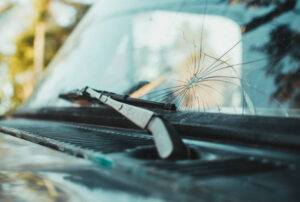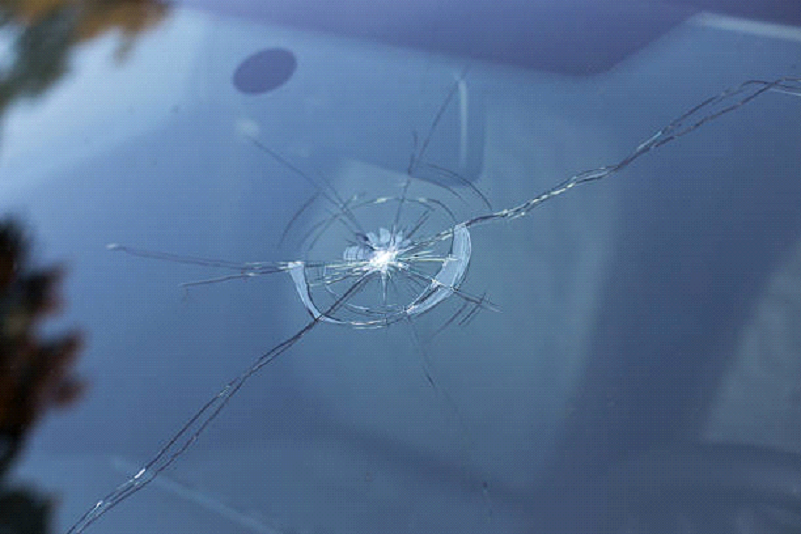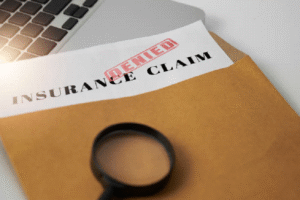A cracked windshield is one of those problems that always seems to happen at the worst time—whether it’s a rock kicked up on the freeway or a surprise hailstorm. The crack might start small, but it can spread quickly, making it unsafe to drive and potentially illegal in some states.
So, the big question is: Will your car insurance pay to fix or replace your cracked windshield?
The short answer is: It depends on the type of coverage you have. In this guide, we’ll break down what’s covered, what’s not, and what to do if you need to file a claim for windshield damage.
🚗 First Things First: Why Windshield Damage Matters
Your windshield does more than just block bugs and wind. It plays a crucial role in the structural integrity of your vehicle, helps airbags deploy properly, and provides visibility. Driving around with a cracked windshield isn’t just annoying—it can be unsafe and may even lead to a ticket, depending on your state’s laws.

🔍 Does Auto Insurance Cover a Cracked Windshield?
Not all insurance policies are created equal. Whether or not your windshield is covered comes down to what kind of insurance coverage you have.
Let’s look at the main types:
✅ 1. Comprehensive Coverage — Most Likely to Cover It
If your windshield cracked due to a falling tree branch, flying rock, hail, vandalism, or even a rogue shopping cart—comprehensive insurance is what you need.
This coverage is designed to handle non-collision events. In most cases, if the damage wasn’t your fault, comprehensive will cover repairs or replacement of your windshield (minus your deductible—unless your policy waives it for glass claims).
Common comprehensive claim scenarios:
-
A rock hits your windshield while driving
-
Vandalism (someone throws something at your car)
-
Weather damage (hail, hurricane, or heavy wind)
-
A deer jumps out and damages your windshield
⚠️ 2. Collision Coverage — Only Covers Accident-Related Damage
If your windshield was damaged in a car crash—say, you rear-ended someone—collision insurance may cover the windshield as part of the overall repair. But here’s the catch:
Collision coverage usually doesn’t apply to standalone windshield cracks. So if a crack showed up out of nowhere or wasn’t caused by a crash, collision coverage probably won’t help.
❌ 3. Liability Insurance — Does Not Cover Your Own Vehicle
If you only have the minimum coverage required by your state (liability insurance), your cracked windshield will not be covered.
Liability insurance is designed to pay for damage and injuries to other people and their property when you’re at fault in an accident. It doesn’t pay for your own vehicle repairs, including glass damage.
🛠️ Tips for Filing a Windshield Claim
Think your insurance will cover your cracked windshield? Great. But before you jump into a claim, follow these steps to avoid surprises and get the best outcome:
1. Check Your Policy for Glass Coverage
Start by reviewing your policy documents or calling your insurer. Ask:
-
Do I have comprehensive coverage?
-
Does it include glass-only claims?
-
Is there a deductible for windshield repair or replacement?
Some policies offer a separate or reduced deductible for glass claims—and some even offer zero-deductible glass coverage.
2. Act Quickly Before the Crack Spreads
A tiny chip today can turn into a long crack tomorrow—especially with heat, cold, or bumpy roads. Most insurers recommend repairing windshield damage as soon as possible. The longer you wait, the more expensive (and dangerous) it becomes.
3. Choose an Approved Repair Shop
Many insurers work with preferred glass repair companies like Safelite or Glass America. Using an in-network shop can mean:
-
Faster service
-
Direct billing to the insurance company
-
Guaranteed repairs
You can usually still choose your own shop—but double-check with your insurer to make sure it won’t affect your coverage or reimbursement.
4. Know When to Repair vs. Replace
Some cracks can be repaired, while others require a full windshield replacement. As a general rule:
-
Repairable: Cracks less than 6 inches or small chips not in the driver’s direct line of vision
-
Replace: Large cracks, edge damage, or multiple chips
Repair is cheaper—and some insurers even waive the deductible if you choose repair over replacement.
🧾 What Does Windshield Repair or Replacement Cost?
Without insurance, you’re looking at:
-
$50–$150 for a small chip or crack repair
-
$200–$500 for a full windshield replacement
-
Up to $1,000+ for high-tech vehicles with special sensors, HUDs, or rain detection
If your deductible is $500 and the repair only costs $150, it probably makes sense to pay out of pocket. But if you have zero-deductible glass coverage, insurance is the obvious choice.

📋 Do All States Treat Windshield Coverage the Same?
Not exactly. A few states have unique rules about windshield repairs:
-
Florida, Kentucky, and South Carolina require insurers to provide free windshield replacement if you have comprehensive coverage—no deductible at all.
-
Other states allow insurers to charge a deductible unless you pay extra for full glass coverage.
Check your state’s rules or ask your agent to explain what applies where you live.
💡 Should You Add Glass Coverage to Your Policy?
If your state doesn’t require free glass replacement and your deductible is high, it might be worth adding full glass or zero-deductible coverage to your policy.
It’s usually an inexpensive add-on and can save you big money if you live in an area prone to road debris, hail, or vandalism.
🚘 Final Thoughts: Know Before You Crack
Cracked windshields are a common (and frustrating) part of driving—but you don’t have to face the repair costs alone. Whether your insurance will help depends on your coverage:
-
✅ Comprehensive insurance covers most windshield cracks from debris, storms, and vandalism.
-
⚠️ Collision insurance only helps if a crash caused the damage.
-
❌ Liability-only policies won’t cover it at all.
Before making a claim, check your deductible, ask about glass-specific coverage, and weigh the repair costs. When in doubt, talk to your insurance agent—they can help you decide what makes the most sense for your budget and your car.
And remember: Fixing a small crack early can prevent a full replacement later.





